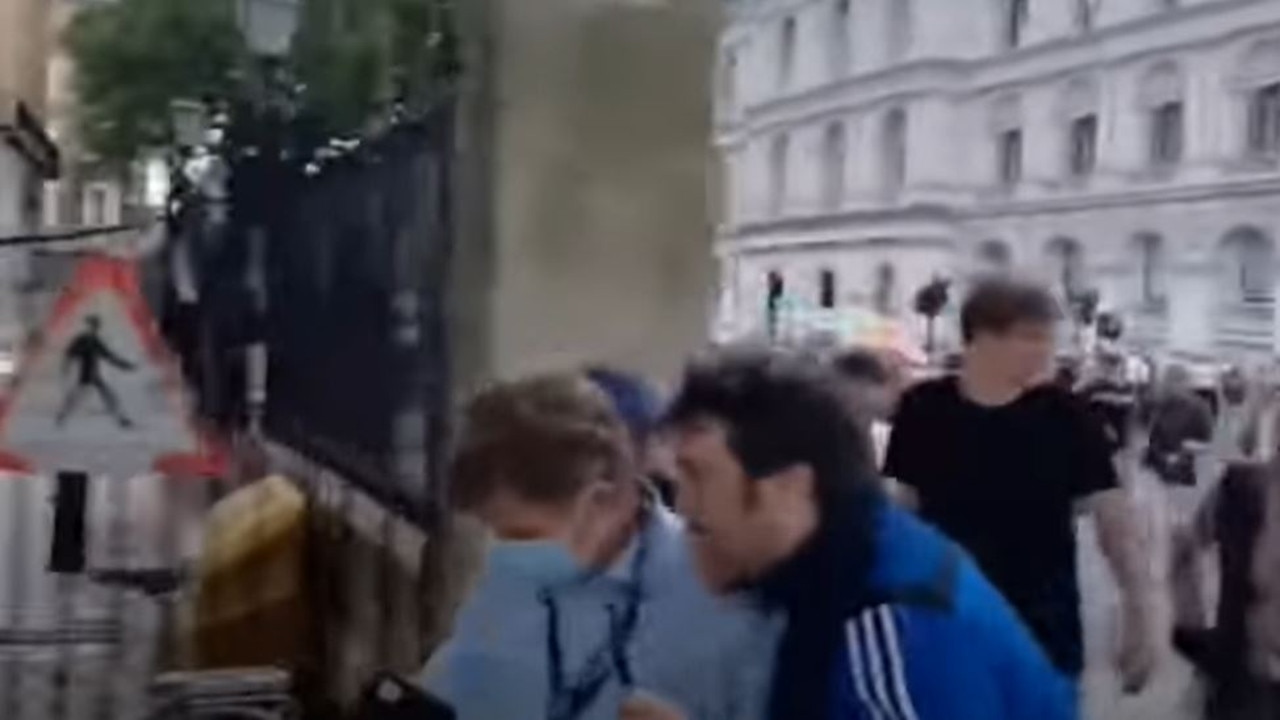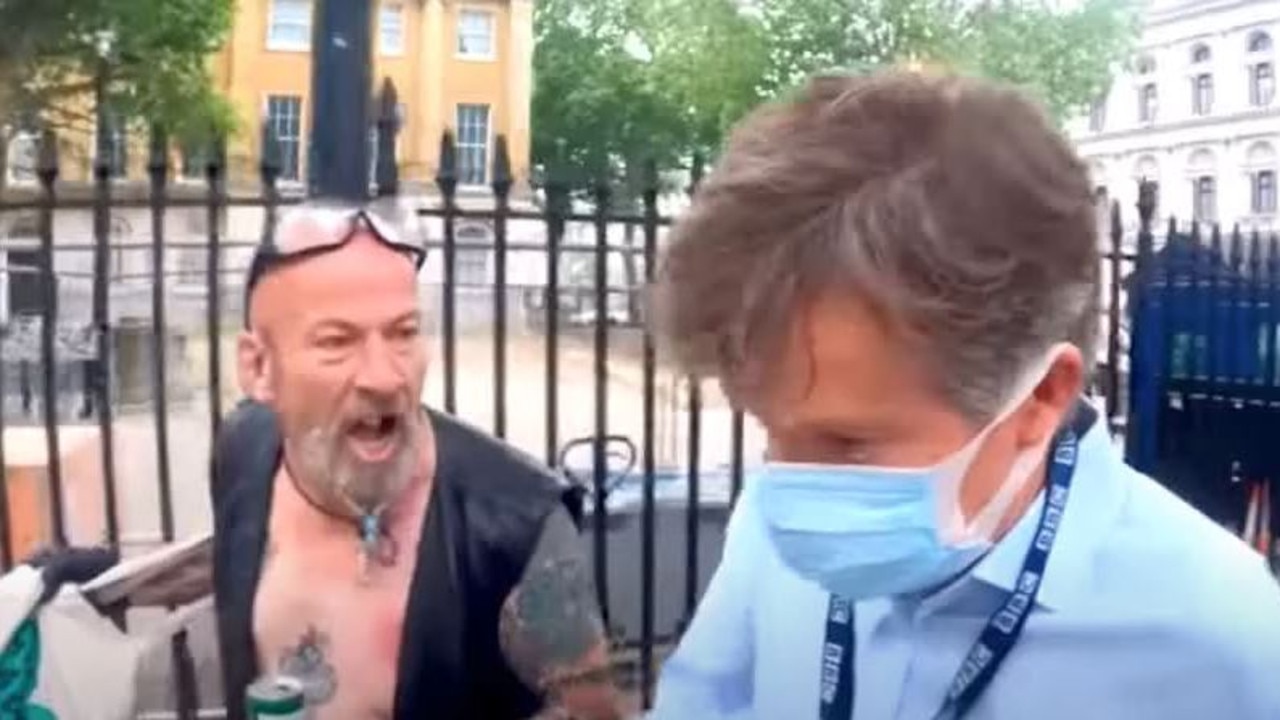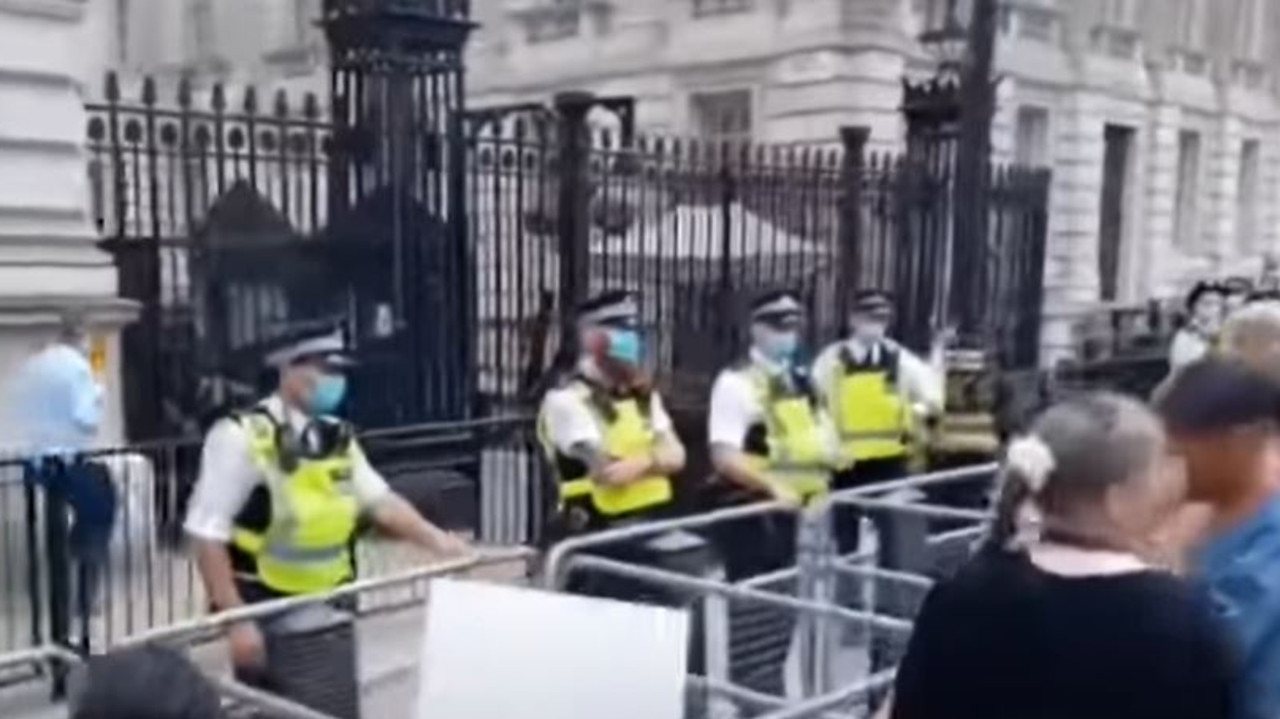Coronavirus world updates: Delta variant becoming globally ‘dominant’, WHO says
Concerns are growing about the Delta variant of Covid-19, the World Health Organisation says, as cases surge in Africa.
The Delta variant of Covid-19 is becoming the globally dominant strain of the disease, according to the World Health Organisation (WHO).
WHO chief scientist Soumya Swaminathan said on Friday that the Delta variant, first identified in India, is “well on its way to becoming the dominant variant globally because of its increased transmissability”.

According to the WHO, coronavirus is spreading faster than vaccines are being administered, and that the G7 nations’ vow to provide a billion doses for poorer nations is simply not enough.
In Africa only about one percent of the population is fully vaccinated, according to WHO figures.
“It’s a trajectory that is very, very concerning,” WHO’s emergencies chief Michael Ryan told reporters from the organisation’s headquarters in Geneva.
According to WHO data, the number of new Covid-19 cases in Africa rose to over 116,500 in the week ending June 13, up from nearly 91,000 the previous week.
Mr Ryan stressed that in terms of absolute numbers, the region did not necessarily look like it was in bad shape, accounting for just over 5 percent of new global cases and 2.2 percent of global deaths last week.
However, he warned, across the continent, the trajectory was pointing straight up, with over 100 percent increases in a range of countries, and over 50 percent in others.
“This is a phenomenon occurring across the continent,” he said.

AUSTRALIA’S VACCINE ROLLOUT
People who have received a first dose of AstraZeneca’s Covid-19 vaccine will get better protection if they have the Pfizer jab for their second dose, a German study has found.
It comes as Canada’s National Advisory Committee on Immunization (NACI) overnight called for Pfizer to be given as the second dose to those who had already received AstraZeneca.
The developments place further pressure on Australia’s troubled vaccine rollout which suffered another blow when experts said on Thursday AstraZeneca should only be given to those aged over 60.
The federal government’s expert advisory committee on vaccines said the risk of a deadly rare blood clot side effect meant it was safer for people aged under 60 to get the Pfizer jab,
However, Health Minister Greg Hunt and other experts have been urging those aged 50-59 who have already had one dose of AstraZeneca to get the same vaccine as their second dose.
“I want to send a very clear message that if you have had your first dose of AstraZeneca, all the medical advice is to please come forward and have your second dose,” Mr Hunt told the Today show on Friday.
But a study by researchers at Germany’s Hannover Medical School, has raised questions about this strategy.
The study which has yet to be peer reviewed found getting Pfizer as the second dose saw an 11.5 fold increase in immunity against the virus that causes Covid-19.
This compared to the 2.9 fold increase in immunity gained when the second dose of vaccine was the AstraZeneca jab.
The study compared the immune responses of 129 health care professionals who had received a first dose of AstraZeneca.
Thirty two of them were given AstraZeneca as their second jab and 55 received the Pfizer shot as their second dose.
A Spanish study has also found combining AstraZeneca with BioNtech/Pfizer seems to be safe however people were more likely to have mild side effects after the second dose than when they received two AstraZeneca jabs.
University of Melbourne’s vaccine expert Professor Fiona Russell said “just because a booster of Pfizer following AstraZeneca gives enhanced immune responses doesn’t mean that this schedule confers enhanced protection”.
“There is the potential that this may translate to longer-term protection but that is not known,” she said.
“We already know that two doses of the AstraZeneca vaccine are similarly effective against hospitalisation for Delta and Alpha, and the original strain, compared with Pfizer/BioNTech. Therefore there is no need to implement mix and match schedules in Australia from an effectiveness point of view,” she said.
Dean of Health Scienes at Swinburne University Professor Bruce Thompson welcomed the study’s findings.
“Such evidence allows flexibility and options in the vaccine rollout. As always, this is preliminary data and will need peer review and further testing. However, it is very good news,” he said
Chief Nursing and Midwifery Office, Alison McMillan told a media conference in Canberra the federal government took its advice on vaccines from it’s own expert committees, not from Canada.
“So, at this point in time, there’s no intent, nor plan, as I understand it, to consider mixing one vaccine with another. The evidence is very low at this point in time on the efficacy of that,” she said.
A spokesperson for the nation’s medicines watchdog the Therapeutic Goods Administration (TGA) said on the basis of currently available information, “Comirnaty (Pfizer) and COVID-19 Vaccine AstraZeneca are not considered interchangeable”.
“Under the terms of the TGA regulatory Approval the two-dose course should be completed with the same vaccine,” the watchdog said.
People who have anaphylaxis or a severe allergic reaction after the first dose of a COVID-19 vaccine should use an alternate brand should be used for their second dose, the TGA spokesperson said.
Those who experienced the rare blood clots after the first dose of AstraZeneca can have Pfizer for their second dose the spokesman said.
MAJOR COVID MOVE AHEAD OF TOKYO OLYMPICS
Japan’s government on Thursday approved lifting Tokyo’s virus emergency just over a month before the Olympics, but set new restrictions that could sharply limit fans at Games events.
The state of emergency in place in Tokyo began in late April and largely limits bar and restaurant opening hours and bans them from selling alcohol.
That measure will now end in the capital and eight other regions on June 20, Prime Minister Yoshihide Suga announced. It will stay in place in Okinawa.
“The number of infections nationwide has been declining since mid-May and the situation in terms of hospital beds is steadily improving,” he said.
“On the other hand, in some regions, there are signs that the fall in the number of infections is slowing,” Mr Suga added.

In place of the emergency, the government will implement so-called “quasi-emergency” measures in Tokyo and six other areas until July 11.
The measures will slightly relax the rules on alcohol, allowing sales until 7:00pm, but still asks restaurants and bars to shut at 8:00pm.
Crucially, with just five weeks until the pandemic-postponed Games open, Tokyo is likely to maintain strict limits on the number of spectators allowed at large events.
The current state of emergency allows only 5,000 people or 50 per cent of venue capacity, whichever is smaller.
And on Wednesday, the government approved an upper limit of 10,000 spectators for areas not under any restrictions.
Those rules are likely to guide Olympic organisers when they decide in the coming days how many domestic fans, if any, will be allowed to attend.

Overseas fans have already been banned from the Games for the first time, and organisers said they would wait to rule on domestic spectators until the emergency was lifted.
The issue is controversial. While cases in Japan have fallen from their fourth wave peak, some medical professionals fear that crowds of Olympic spectators could fan a new surge.
A report expected soon from some of the government’s top medical advisers will argue holding the Games without fans would be safest, national broadcaster NHK said Thursday.
The experts will urge that additional rules are imposed if spectators are allowed, NHK said.
Japan has seen a comparatively small virus outbreak, with slightly over 14,000 deaths despite avoiding harsh lockdowns.
But just over six per cent of the population is fully vaccinated so far. Given the likely restrictions, Olympic organisers have given up on selling any more tickets and are weighing a lottery system to determine which ticketholders will be able to attend events, Kyodo news agency reported.
Millions of tickets were sold in Japan last year before the postponement, and while several hundred thousand applications for refunds were processed after the Games were postponed, the number of ticketholders is still likely to exceed any spectator caps at many events.
With just over a month until the Games open, organisers are attempting to build confidence that the biggest international event since the pandemic began will be safe for participants and the public.
Newly updated virus rulebooks released this week warn athletes they could be expelled from the Games if they violate requirements like mask-wearing and daily testing.
Organisers say more than 80 per cent of athletes will be vaccinated and they will be barred from interacting with the Japanese public.
Recent polls have suggested a slight shift in public opposition to holding the Games, with more now in favour of it going ahead than cancelling it.
Previous surveys that offered postponement as an option tended to show most Japanese preferred either another delay or cancellation.
UK CASES SOAR AGAIN
The United Kingdom has recorded more than 11,000 new cases of Covid-19, the highest daily case load since February when the country was gripped by its deadly second wave.
The UK government announced this week that it is delaying further relaxations on restrictions due to concerns over the strain, first detected in India.
Britain’s death rate remains relatively low after a rapid vaccine rollout, with 19 fatalities recorded Thursday.
It comes as the European Medicines Agency stressed that there is still a pandemic and urged EU states to use “all the vaccine options available to fight the coronavirus pandemic”.
The comments come as several countries have limited the use of so-called viral vector jabs like AstraZeneca and Johnson & Johnson due to a link with rare blood clots, opting instead for messenger RNA vaccines like Pfizer and Moderna.
Parts of Europe are still seeing rising cases.
Portugal’s government on Thursday local time said it was banning weekend travel in and out of the Lisbon region due to worryingly high infection rates.
The Russian capital Moscow is also seeing a sudden jump on Covid-19 cases. “It’s most likely we are facing new, more aggressive variants which spread more quickly,” the city’s mayor Sergei Sobyanin told a video conference.
He noted that daily infections in Moscow had soared from 3,000 to 7,000 within a few days and were expected to hit more than 9,000 on Friday.
“It’s tripling,” he warned. “There’s an enormous dynamic that we have not seen during the previous waves.”
DELTA VARIANT SPREADS
It comes as the World Health Organisation confirms the Delta variant has spread to more than 80 countries and it continues to mutate as it spreads across the globe.
Studies have shown the variant is even more transmissible than other variants. WHO officials said some reports have found that it also causes more severe symptoms, but said that more research is needed to confirm those conclusions.
WHO is also tracking recent reports of a “Delta plus” variant.
“What I think this means is that there is an additional mutation that has been identified,” said Maria Van Kerkhove, WHO’s Covid-19 technical lead.

“In some of the delta variants we’ve seen one less mutation or one deletion instead of an additional, so we’re looking at all of it.”
The Delta variant is now the dominant strain in the UK, surpassing its native alpha variant, making up more than 60 per cent of new cases in Britain.
In the US, the variant now makes up 10 per cent of all new cases.
America’s top doctor, Dr Anthony Fauci, said last week that “we cannot let that happen in the United States,” as he pushed to get more people vaccinated, especially young adults.
The Centres for Disease Control and Prevention designated the Delta variant as a variant of concern in the US on Tuesday.

BORIS SLAMS ‘HOPELESS’ HEALTH MINISTER
Meanwhile, British Prime Minister Boris Johnson has full confidence in his under-fire health secretary, his spokesman said on Wednesday local time, despite private WhatsApp exchanges emerging in which he appears to slam the minister’s “hopeless” handling of the pandemic.
The endorsement of the beleaguered Health Secretary Matt Hancock came hours after Mr Johnson’s messages with former chief aide Dominic Cummings — who stepped down from the role in December — were posted online by the controversial ex-adviser.
Mr Cummings, who has spent recent months savaging both his former boss and Mr Hancock, tweeted screenshots of the exchanges apparently between him and Mr Johnson in March and April last year as Britain battled the first wave of the pandemic.

Mr Johnson apparently responded, “Totally (obscenity) hopeless” to a comment by his ex-aide that Mr Hancock was unsure he would reach a target of 10,000 virus tests per week on schedule.
In another reply, Mr Johnson blamed Mr Hancock for the UK’s difficulty in getting hold of ventilators. “It’s Hancock. He has been hopeless,” the message said.
The British leader’s spokesman would not comment on the messages, but simply replied “yes” when asked by reporters if he had total confidence in Mr Hancock.
“The prime minister has worked very closely with the health and social care secretary and will continue to do so,” the spokesman added.

JOURNO CHASED BY ANTI-LOCKDOWN PROTESTERS
A BBC journalist was chased by anti-lockdown campaigners who called him a “c***” as a protest through central London turned ugly.
The British national broadcaster’s political editor of the program Newsnight, Nick Watt, was near the Houses of Parliament and the Prime Minister’s Residence at 10 Downing St, where he had filmed a segment about the decision to extend the country’s Covid-19 lockdown until July 19.

Footage of the incident shows Mr Watts initially being followed by a small group of protesters, which then grows larger and louder.
“Run you f***ing c***,” yells one of the protesters, before several of them start chanting the word “traitor”.

“Why have you lied and said the lockdowns are legal? How can it be legal to lock people in their houses?” another asks.
Mr Watts then reverses direction and makes it back past a police line he encountered earlier, and is able to find safety on the other side of the security gate.
British Prime Minister Boris Johnson condemned the protesters, saying: “Disgraceful to see the hounding of Nick Watt doing his job.
“The media must be able to report the facts without fear or favour. They are the lifeblood of our democracy.”

BBC director-general, Tim Davie, said: “The safety of journalists is fundamental to any democracy. They must be able to report unhindered, free from abuse.
“There is absolutely no justification for any journalist to be treated in this way.”
The UK lockdown was due to end on June 21, but Mr Johnson has now pushed it back by a month.
He is concerned about the growing prevalence of the more infectious Delta variant, which appears to have originated in India.
“By being cautious now, we have the chance in the next four weeks to save many thousands of lives by vaccinating millions more people,” Mr Johnson said.
Originally published as Coronavirus world updates: Delta variant becoming globally ‘dominant’, WHO says




